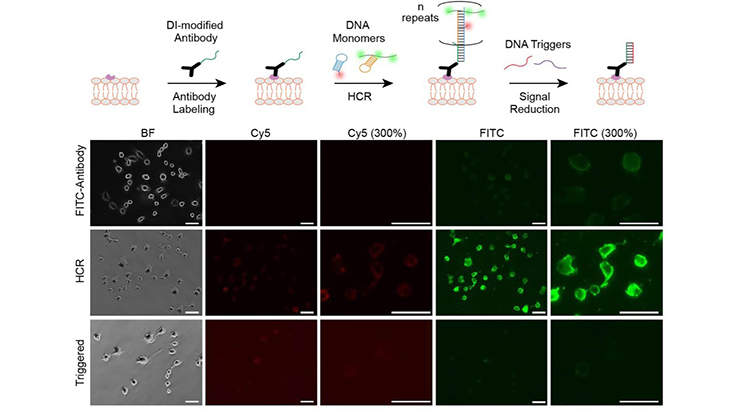Biodegradable DNA-alginate Conjugate for Reversible Protein and Cell Labeling and Imaging
ID# 2020-5055
Technology Summary
The current gold standard method for immunostaining and cell labelling (for FACS) is to stain a protein with an antibody that only carries a few fluorophores. Resolution is often limited due to a number of factors, particularly low abundance of the target protein. To address this, Penn State inventors have developed a buildable polymer-based signal amplification technology that 1) amplifies signal intensity by at least one order of magnitude as compared to traditional protein labelling techniques, 2) is reversible, and 3) is operatable under both physiological and non-physiological conditions. In this novel method, fluorescent nanoscaffolds, composed of linear DNA polymers and alginate branches, are targeted to specific cellular locations using conjugated primary antibodies. Both synthesis and reversibility of the fluorescent nanoscaffold chains can be controlled at the molecular level.
Application & Market Utility
This technology is expected to be broadly applicable in the biological and biomedical sciences, in both academic and commercial settings. The inventors expect the technology will have pronounced utility in applications that include small sample size or have low abundance molecular targets, including analysis of rare circulating tumor cells, forensic specimens, and prenatal testing samples. Due to reversibility of the nanoscaffold, the technology may also allow for positive selection of therapeutic cells. Samples can be made available for academic research and product evaluation.
Next Steps
The researchers seek commercialization partners for field-specific development of the technology.

